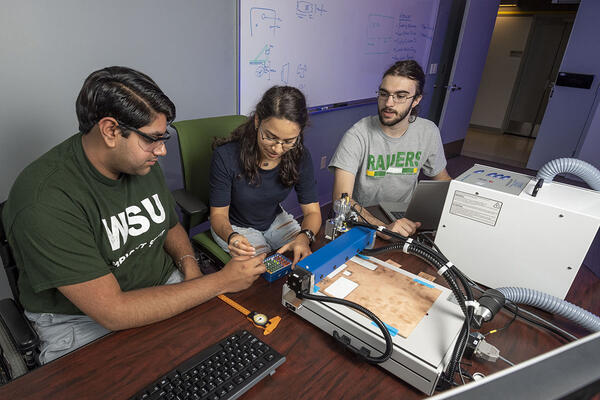Why choose electrical engineering or electrical and computer engineering technology?
Graduates of the Bachelor of Science in Electrical Engineering (BSEE) program and the Bachelor of Science in Electrical and Computer Engineering Technology (BSECET) program work in all economic sectors: energy, transportation, communications, health care, security and defense, and leisure. They work individually and in teams to innovate solutions ranging from an efficient power system for your cell phone to the complete ground and satellite network, which streams your internet services.
They design the electronics, sensors, and algorithms to control electric cars, boats, planes, satellites, and spacecraft, as well as the multitude of acoustic, radio wave, and optical systems that enable autonomous operation. Engineers and technologists invent manufacturing robots and signal processing and computing methods to detect injury and disease and to provide surveillance for air traffic control, weather, and commercial and residential security. With such versatility, these graduates enjoy consistent employment opportunities with high-paying salaries in rewarding and exciting careers.
Degrees and Programs
Bachelor's Degree
Combined B.S./M.S. Degree Programs
Master's Degree
Doctoral Degree
Graduate Certificates
Undergraduate Minors
View a full list of Electrical Engineering courses with descriptions.



